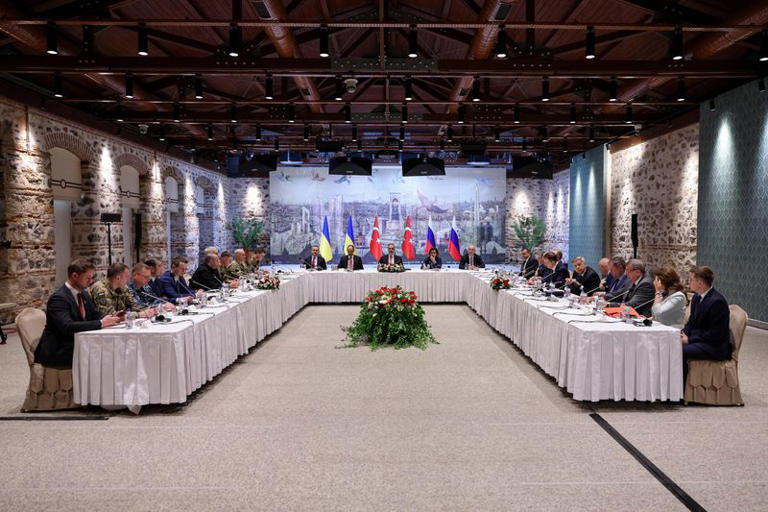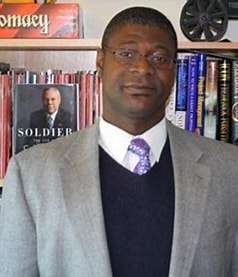Last Friday in Istanbul, Ukraine and Russia sat across from each other for the first time since 2022.
It was a moment that could have marked a turning point in a war that has dragged on with devastating human and geopolitical costs.
But instead, it turned into yet another diplomatic illusion—because the one man who mattered most didn’t show up.
Russian President, Vladimir Putin sent a low-profile team of aides and Deputy Ministers to the negotiating table, sidestepping Ukrainian President Volodymyr Zelenskyy’s call for direct talks.

Zelenskyy, understandably frustrated, slammed the Russian delegation as “weak and unprepared,” accusing Moscow of approaching the talks without a meaningful mandate or serious intent to negotiate an end to the conflict.
The only tangible result from the talks—a prisoner swap involving 1,000 detainees—was important, but far from the comprehensive breakthrough Ukraine was hoping for.
Meanwhile, Ukraine continues to pay the price, militarily and diplomatically.
Speaking with The Vaultz News, Kwaku Nuamah, a Senior Professorial Lecturer at American University, pointed out that Putin did not meet with Zelenskyy because he is under no pressure to do so.

He added that the Russian President is signaling strength and a conviction that he can win this war on his terms and therefore he is not desperate for a mediated settlement. “This could be a bluff or, based on his reading of the Trump position, his actual assessment of the situation,” he said.
Also, Nuamah stated that repeated calls for dialogue makes Zelenskyy look desperate. “That’s important because it epitomizes the structural asymmetry of the ongoing negotiations,” he said.
“Clearly Zelenskyy appears to need a negotiated settlement more than Putin, and that asymmetric vulnerability means he has less leverage and will probably be forced to make concessions unless he can find a way to restore structural symmetry.”
Kwaku Nuamah
According to Nuamah, additional sanctions can always help increase pressure but it has to be sufficiently punitive to raise the cost of noncompliance for Russia.
“The question is who will impose such sanctions? I don’t see the Trump administration pushing for such sanctions considering its desire for closer ties with Putin. The Europeans will probably be more amenable to such persuasions, but they are still dependent on Russian oil and gas so there’s vulnerability there as well.
“In any case, increased European sanctions without American sanctions will not lead to any significant changes so that’s a moot point.”
Kwaku Nuamah
However, he said, Trump is “quite unpredictable” so there could see a situation where he allows the US Congress to impose additional sanctions on Russia, “which, even if they are not enforced immediately, can still serve as leverage in future negotiations—assuming Trump is willing to use that leverage to extract concessions from Putin.”
Scenarios Needed To Bring Putin To Negotiation Table
Moreover, Nuamah opined that there are three scenarios that can produce the kinds of incentives needed to get Putin back to serious negotiations.
First, Ukraine can concede the war and accept all of Putin’s conditions for peace.
Second, Ukraine can raise the cost of non-negotiation for Putin by escalating its attacks on the battlefield.
Third, key mediators can raise the cost of non-negotiation for Putin by significantly increasing their support for Ukraine, “the weaker party in this asymmetric negotiation.”
He noted that the first scenario comes with enormous political costs for Zelenskyy so “it will probably not happen even with US pressure as long as he remains President of Ukraine.”
He added that Zelenskyy’s ouster, “which is not impossible, could open the way for such as ignoble surrender.”
He also stated that the second and third scenarios are linked because they both require significant increases in American support for Ukraine, something that seems “unlikely under Trump at least for now.”
Nuamah asserted that Ukraine has shown that it can hurt Russia on battlefield, but it has so far been unable to string together the kinds of important wins that can force Putin to sue for peace. “That leaves Washington as the main source of hope for rescuing the negotiations,” he stressed.
“Can Donald Trump turn on Putin and become a stronger backer of Ukraine? The answer is yes, because Trump is unpredictable and transactional. He may get tired of Putin dragging out the process or even snubbing him and decide it’s time to change positions.
“What’s unknowable is the tipping point, because Trump tends to match to beat of his own drum and relies less on established norms or traditional foreign policy guidelines in making decisions.”
Kwaku Nuamah
The Istanbul meeting could have been a breakthrough. Instead, it exposed the fundamental imbalance at the heart of this war.
Ukraine is still fighting on the battlefield and at the negotiating table but unless the world, particularly America, recalibrates its strategy, future talks may simply repeat the same script: Ukraine begging for peace, and Russia refusing to answer the call.
READ ALSO: Bond Market Activity Rises 25.14% to GH¢1.41bn Amid Investor Caution



















